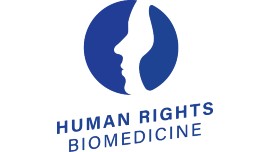ECtHR relevant case law
 "Bioethics law, which is the result of relevant texts and case law, is indicative of the processes of evolutionary creation of law in an increasingly complex society."
"Bioethics law, which is the result of relevant texts and case law, is indicative of the processes of evolutionary creation of law in an increasingly complex society."
Jean-Paul Costa, then President of the European Court of Human Rights, on the occasion of the 10th anniversary of the entry into force of the Oviedo Convention, 3 November 2009
Since its first major references to the Oviedo Convention in two judgments in 2004 (Glass v. the United Kingdom and Vo v. France), the European Court of Human Rights has been called upon to rule on an increasing number of cases dealing with different aspects of bioethics, including: consent to medical treatment or examinations, or to the removal of organs or tissues; reproductive rights (prenatal diagnosis, medically assisted procreation and the right to legal abortion); decisions taken in end-of-life situations; the retention of biological data by the authorities and the right to know one's biological identity. The cases brought before the Court raised important and often very sensitive issues under Articles 2, 3, 5, 6 and especially 8 of the European Convention on Human Rights.
In its case law, the European Court of Human Rights often refers to texts and instruments developed by the Bioethics Committee. For example, in its judgment in Lambert and Others v. France (2015), the Grand Chamber of the Court based part of its reasoning on the "Guide to decision-making on medical treatment in end-of-life situations".
- ECHR and bioethics October 2023 - May 2024
- ECHR and bioethics June 2023 - October 2023
- ECHR and bioethics October 2022 - June 2023
- ECHR and bioethics May 2022 - October 2022
- ECHR and bioethics November 2021 - May 2022
- ECHR and bioethics October 2020 - June 2021
- ECHR and bioethics November 2019 - October 2020
- ECHR and bioethics May 2019 - November 2019
- ECHR and bioethics November 2018 - May 2019
- ECHR and bioethics May 2018 - November 2018
- ECHR and bioethics October 2017 - May 2018
- ECHR and bioethics May 2017 - October 2017
- ECHR and bioethics November 2016 - May 2017
- ECtHR and bioethics May - November 2016
- ECHR and bioethics November 2015 - May 2016
- ECHR and bioethics April - November 2015
- ECHR and bioethics December 2014 - April 2015
- ECHR and bioethics May - December 2014










